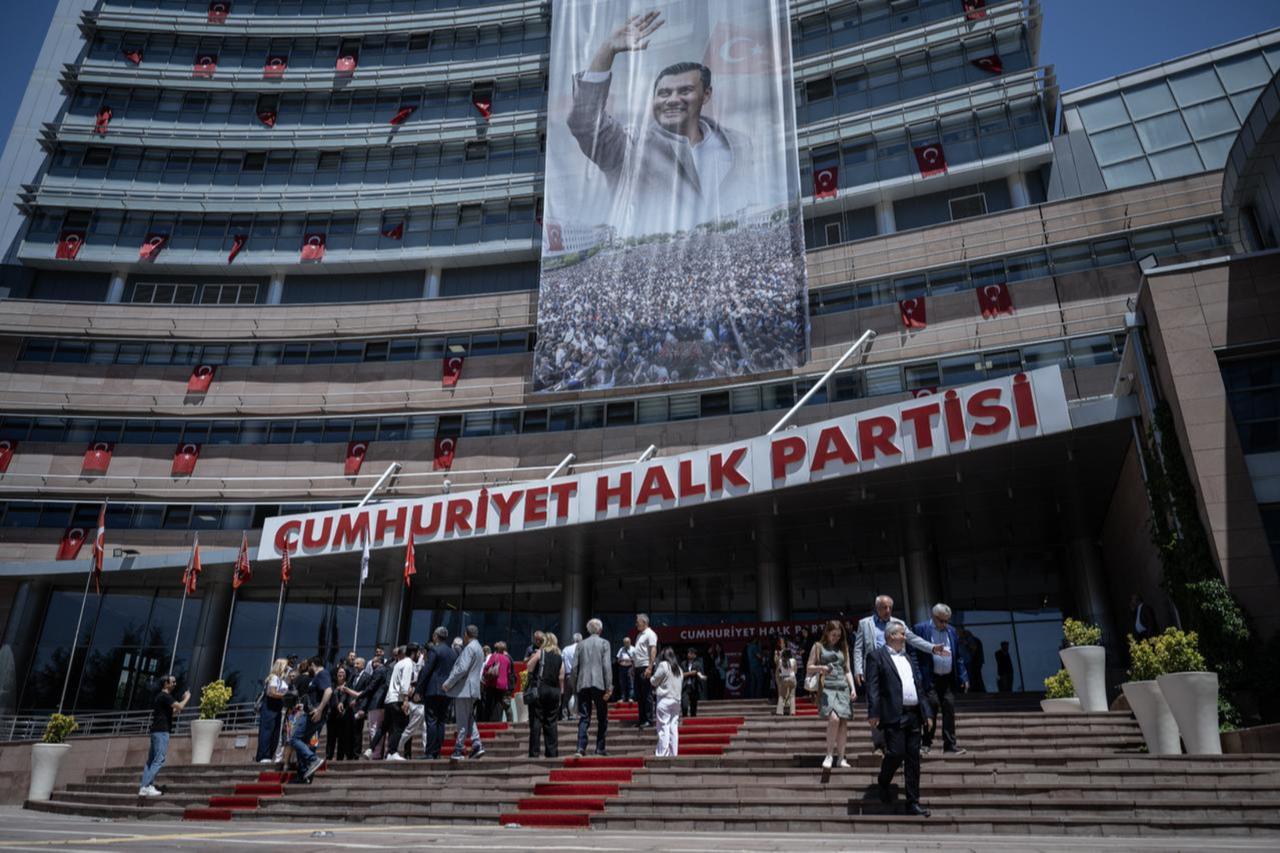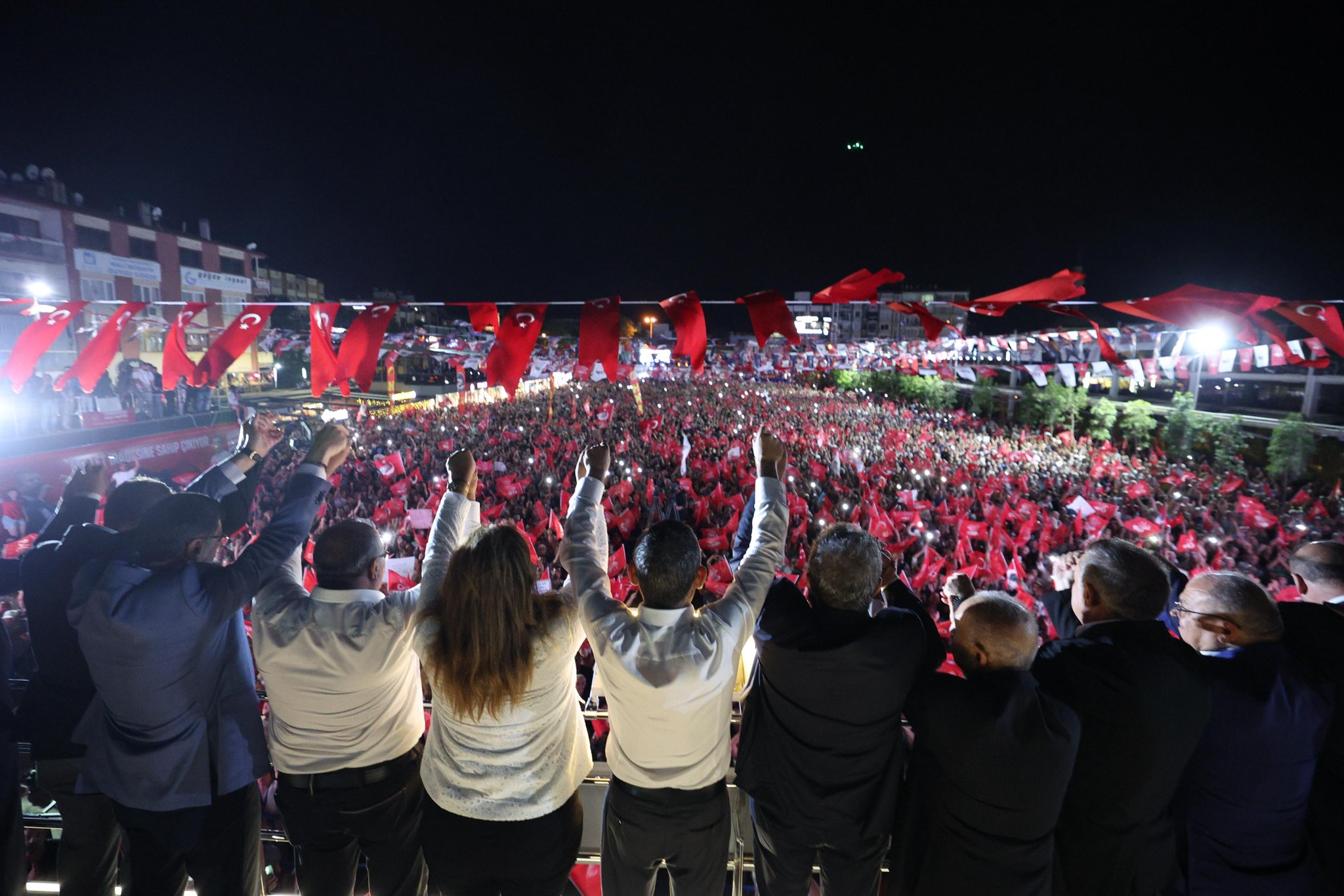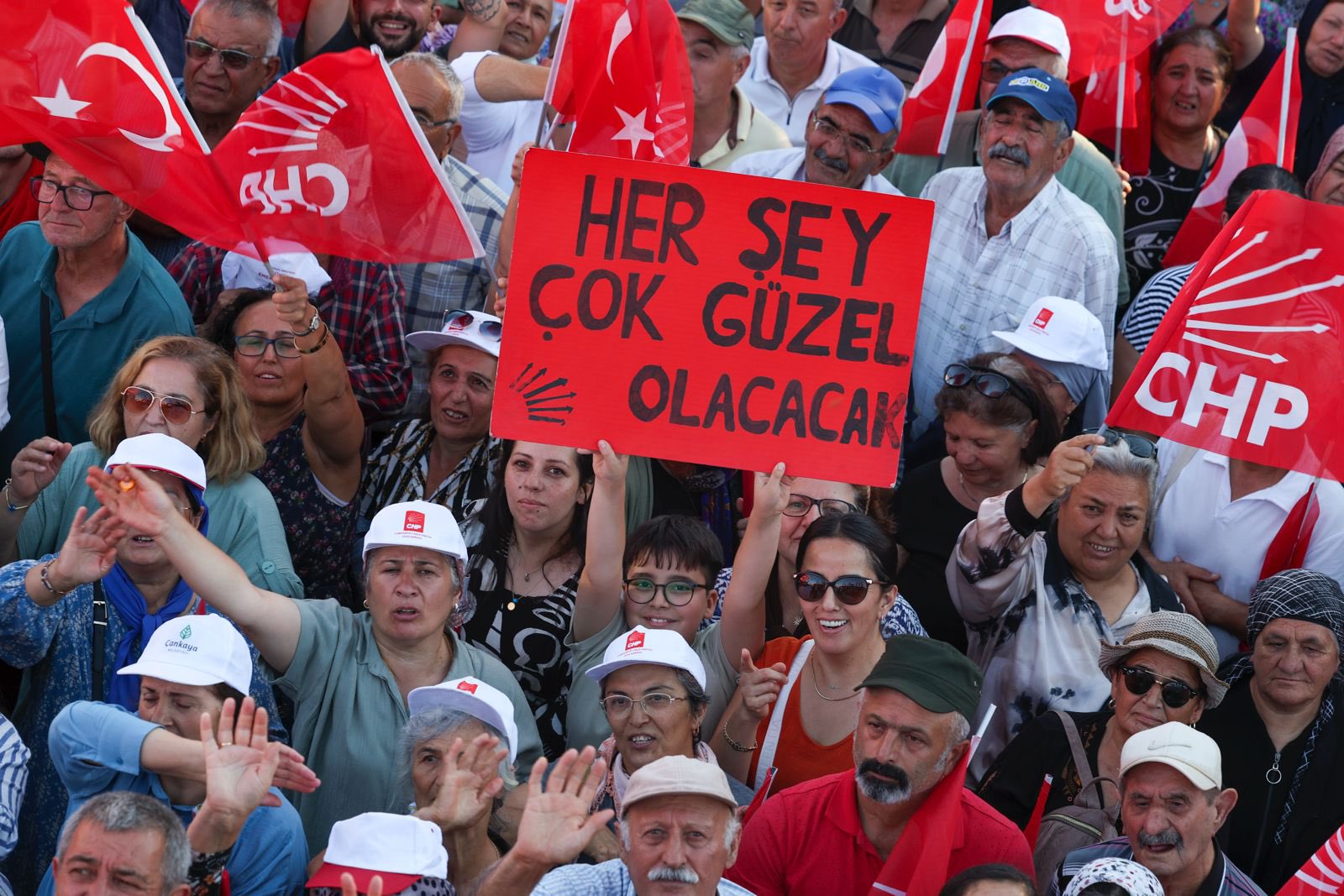
As the rescheduled lawsuit concerning the Republican People’s Party (CHP) approaches Sept. 15, Türkiye’s main opposition prepares for its 38th Ordinary Congress.
Party officials, noting inconsistencies among judicial rulings and anticipating that the Constitutional Court will ultimately settle the dispute—a process expected to take at least five to six months—find the party caught in prolonged litigation and legal ambiguity. Rather than becoming mired in these legal battles, however, CHP officials are endeavoring to articulate an alternative strategic vision, aiming to steer the party forward despite the ongoing legal process.
The party leadership has already begun preparations for the 39th Ordinary Congress with the statutory calendar moving forward. Provincial congresses are set to conclude by the end of October, paving the way for the national congress, which is scheduled to take place at the end of November or the beginning of December.
A key feature of the upcoming congress will be the presentation and approval of CHP’s new party program. The drafting process is nearing completion, with a final workshop scheduled during the party’s anniversary week from Sept. 4 to 9. This “program workshop” will bring together party organs, academics, and policy experts to finalize the document before its submission to delegates.
The program is expected to serve as a long-term political framework of the party. On the other hand, a government program is currently being prepared by figures close to former Istanbul Mayor Ekrem Imamoglu. While the party program defines the overall vision, the government plan is designed as a more immediate, action-oriented roadmap for a possible transition to power.
Internal mechanisms, such as congresses and conventions, remain central, but they are now complemented by workshops, expert input, and cross-level consultations. The shift suggests an attempt to show the CHP as more responsive and dynamic than in previous years.
At the same time, the recent months have been dominated by rallies and grassroots mobilization.

A central element of CHP’s current strategy is the development of two parallel initiatives: a party program and a prospective government program. Both involve overlapping figures, such as General Secretary Selin Sayek Boke, but their intended purposes differ.
The party program is envisioned as a long-term framework that outlines the CHP’s vision and ideological direction. It will eventually be debated and approved at a convention. The government program, meanwhile, is presented as an action-oriented roadmap designed for potential implementation if the party enters office. One emphasizes broad principles, while the other focuses on execution and governance.
CHP leader Ozgur Ozel’s recent positions on foreign policy, including his warning prior to the Azerbaijan-Armenia agreement, as well as his vocal stance on the Gaza issue, are all outcomes of the same strategy.
The chair’s visit to Turkish Aerospace Industries (TAI) and his public endorsement of Türkiye's advances in defense technology, notably countering past intra-party skepticism toward the sector, further illustrate this new agenda of demanding continuity in governance.
Within the party’s leadership, these programs are viewed as complementary; the first outlines the overall direction, while the second describes how it can be implemented in practice.

The rallies that followed legal challenges against Imamoglu underscored CHP’s ability to mobilize supporters. They also demonstrated that the party maintains organizational depth beyond individual leaders, while meeting the demands of voters for action.
At the same time, it is well understood that maintaining such an active stance through rallies is among the most effective ways to keep the party organization mobilized, especially during turbulent periods marked by arrests and investigations.
In parallel, CHP has taken part in parliamentary commissions, treating them not only as symbolic forums but also as arenas to shape debate and outcomes. This indicates an attempt to remain relevant in institutional politics, rather than limiting activity to public demonstrations.
In this context, both mass rallies and negotiations with the ruling party have functioned as strategic instruments through which the CHP calibrates the intensity of political tension and maintains its relevance in the public sphere.
Imamoglu remains a popular figure, and his profile has secured his place in the party, thanks to the loyalty of Ozgur Ozel since March 19. However, questions about his eligibility and the possibility that he may not be nominated leave the leadership issue unresolved.
Although Ozel may not be able to personally secure Imamoglu’s candidacy, he appears to be attempting to guide the party safely through the upcoming elections. Crucially, ensuring party unity remains a priority, and Ozel seems to have a plan in place to prevent internal divisions during this critical period.
A concrete example of Ozel’s shift toward an action-oriented approach within party affairs emerged during the selection of members for the “National Solidarity, Brotherhood, and Democracy Commission” in the Turkish Parliament, established in the context of the government’s “terror-free Türkiye” initiative and the PKK terrorist group’s disarmament process.
Notably, among those Ozel nominated for the commission was Oguz Kaan Salici, a politician who, during the contentious 2023 CHP Congress, stood firmly with Kemal Kilicdaroglu against Ozel and continues to maintain close contact with former leader of the party.

CHP’s control over several major municipalities continues to be a significant asset. Local governments serve both as governance laboratories and as a showcase for potential national policies. They also provide the party with platforms to demonstrate administrative capacity ahead of possible elections.
This municipal base has been key to Ekrem Imamoglu’s profile and is expected to remain central to the CHP’s broader strategy, allowing it to link local-level governance to national ambitions.
Despite gains among undecided voters, young people, and former supporters of smaller opposition parties, CHP has not made major inroads into the core constituencies of the ruling Justice and Development Party (AK Party) and its ally, the Nationalist Movement Party (MHP).
Research indicates two areas of potential vulnerability for the government: economic hardship and perceptions of justice. While economic grievances are widespread, many voters also view legal cases against opposition figures as politically motivated. These issues could create openings, but whether CHP can convert them into lasting support among conservative and nationalist segments remains to be seen.